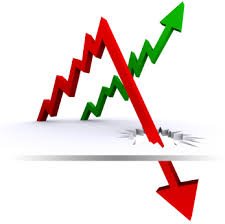When you think of volatility, you probably think about what you see in the trading markets. There seems to be all kinds of discussions on market volatility. I like think about volatility in other parts of life. For many people, there is a trade off they are willing to make to reduce volatility. This price will vary for each person in the same manner as everyone has varying levels of risk tolerance.
Suppose I told you at the end of every pay period, we will flip a coin. If the coin lands on tails, you don’t get a paycheck for the period you just worked. But if the coin lands on heads, I will pay you you normal salary plus 5% bonus for participating in my new pay scheme. You can choose not participate and have a steady paycheck. How many people would take the coin flip method as a way of getting paid? Over enough coin flips you should expect to get paid more money. Maybe I need to make the bonus 20% to get you interested in the new scheme. You can look at it as people are willing to make less money for a steady paycheck. Or people want to get paid a bigger bonus to accept more uncertainty for any given paycheck. Although there are other variables to consider, this is something you can extend to people choosing between a stable corporate job vs. a new start up company.
Another area I see that we are willing to pay a price to reduce volatility is for airlines with on time arrivals. I personally suffered through many airline delays in my travels in China, notably between Hong Kong and Shanghai. There seems to be data that supports that the average consumer is willing to pay a premium to travel on airlines with high on time performance vs. a discount airline with a poor on time performance record. In my case with the Shanghai to Hong Kong flight corridor, the delays were so frequent and bad, there became a market for insurance to pay off if your flight is delayed by certain thresholds.
In the example with the flight insurance for delayed flights, most people probably would just prefer that they pay more money and get good on time flight performance. I think about this with any number of products where the salesperson tries to sell me on extended warranties. If I am paying a premium to buy a product with a good reputation for quality, why should I waste my money on buying the extended warranty? Why would I buy a poor product that needs an extended warranty?
I am sure if you think about the different facets of your life, you can identify volatility and what price you are willing to pay to mitigate or hedge that volatility.
